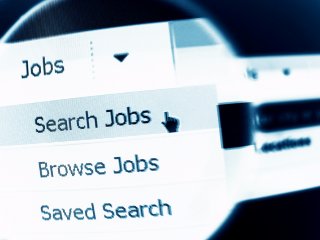Posted June 16th, 2021
By Kris Powers
It’s no secret that the pandemic wreaked havoc on employment. As the economy seeks recovery, TopResume, a resume-writing service, surveyed human resource professionals and hiring managers to learn how the pandemic affected the job search and hiring process.
The findings? Human resource professionals may be focused on different factors when considering job applicants than they were pre-pandemic. Job seekers should be aware of the latest trends in order to improve their chances of snagging their desired job. Here are 8 things to keep in mind:
1. Remote work may be here to stay
During the pandemic, many nonessential companies allowed their employees to work from home whenever possible. While some companies are bringing their employees back to the office, many positions are moving to a more permanent remote work business model, downsizing office space or getting rid of it entirely. A survey from KPMG found that as many as 70 percent of companies may be following this trend.
What does that mean for the job search? Recruiters will be looking for candidates who can be successful working remotely. Your resumé should list your experience telecommuting. It may also be helpful to mention which technologies you already have access to at home — reliable high-speed internet, business software, video or audio equipment, and more. During the interview, be prepared to talk about your ability to be productive in a work-from-home situation. See this article for advice on how you can highlight your remote work experience.
2. Your job interview might be a video chat
According to a survey conducted by Gartner, Inc., in April 2020, 86 percent of employers at that time had switched to conducting job interviews through video. Therefore, brushing up on your video interview skills is a must.
“While most organizations are currently conducting interviews remotely due to the COVID-19 pandemic, virtual interviewing may become the new standard for recruiting leaders and candidates long after social distancing guidelines are lifted,” said Lauren Smith, vice president in the Gartner HR practice. “The most successful organizations provide candidates with the same level of information and feeling of connection with the organization as they would have with an in-person interview or onboarding experience.”
Practice online interviewing, get comfortable with common technologies including Zoom or Teams, and find the perfect spot in your home to conduct these calls. Regardless of whether you are interviewing in person or on video, prior to the interview, learn as much as you can about the role you are applying for, research the company and even try to find information on your interviewer. And even if the position you are applying for is remote, be prepared to discuss your willingness to be in the office if necessary. Many companies are struggling to determine the correct balance of remote and in-person work – weighing employee preferences and corporate/client demands.
3. Networking opportunities may also remain more virtual.
Networking with others in your desired industry is often what leads to landing that perfect job. While in-person networking is not yet back in full swing; job fairs and Zoom-based networking opportunities are still available. Sign up, participate, and get to know people! Join professional organizations in your field and get active. Post your resume on LinkedIn and build your connections there.
4. Gaps in your employment history? No problem!
With so many workers losing their jobs due to the pandemic, recruiters are less concerned about gaps in your resume. Rather than trying to hide any employment gaps, when asked, briefly explain what happened and talk about how you used that time to build skills and increase your knowledge base.
5. It may be time to switch your career path.
If you are having difficulty finding work, perhaps it’s time to train for a more "pandemic-proof" or "pandemic-resistant" job. These types of jobs will still be needed in a pandemic situation. Pandemic-resistant jobs include careers in fields such as healthcare, childcare and technology jobs that can be worked from home.
6. It’s more important than ever to make yourself stand out.
With so many unemployed individuals, there will be more competition for the position you are interested in. Freshen your skills by taking online courses in subjects like business management, marketing, sales, and public speaking. These skills will never go out of fashion and are great additions to any resume.
7. Take time crafting your cover letter.
Pre-pandemic, recruiters acknowledged that many cover letters were not read. Computer software screening applications often used in early rounds of recruiting automatically sifted through resume submissions. As such, the cover letters often were often never read. TopResume’s survey hints that may be changing as 48% of recruiters indicated they are more likely to read a cover letter now than they were before the pandemic.
Make the biggest impression by taking the time to explain why you are the best fit for the job, and be sure to include important keywords from the job posting itself in both your cover letter and resume. This increases the likelihood that your resume will be seen, even if the company is utilizing screening software.
8. Remember to say “thank you”.
Whether you are interviewed in person or via video, be sure to send a thank you email to those you meet with. Not only is it good manners, it shows the recipients that you are really interested in the job and gives you another chance to remind them who you are and to explain why you would be ideal for the position!
The long-term effects of the pandemic on jobs, careers, and the way that we work are still to be seen. But the above processes that were adopted during the beginning stages of the pandemic appear to be here to stay. As the world or work changes, so must we change the way we look for work.





